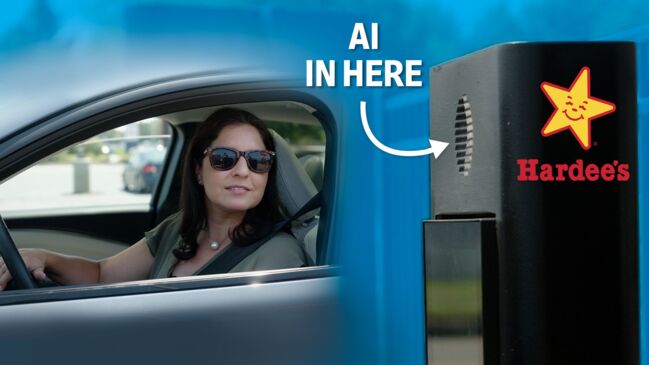Working with robots: how AI is revolutionising productivity and the Australian jobs landscape
Generative AI – such as ChatGPT – is already changing the way we work, the people we hire and the skills we need. Is it a win for productivity or the beginning of mass disruption?

In a world where artificial intelligence can craft our emails, analyse our data, draft our presentation slides, sit meetings in our place, and even write our computer code, what is left for white collar workers to do?
Plenty, according to the experts – but many of us will need to reassess our roles, skills and the way we learn.
Microsoft’s 2023 Work Trend Index revealed almost half (46 per cent) of Australians worry AI will replace them at work, but even more (64 per cent) would delegate as much work as possible to AI to lessen their workloads.
And the majority would be comfortable using AI not just for administrative tasks (71 per cent), but also for analytical (75 per cent) and creative (66 per cent) aspects of their role.

Already, workers are using AI-powered text-to-image generators such as Midjourney and DALL-E to create logos and artwork for websites, presentations and reports; and using chat bot ChatGPT for language-based tasks such as summarising documents, brainstorming ideas, translating information for different audiences, and drafting content from legal documents to social media posts.
With ChatGPT, users give the bot instructions using plain language and receive a human-like response then, if needed, continue in a back-and-forth conversation until they have the output they need.
It’s like having a free assistant on your team to help with low-stakes tasks.
Soon, the same large language model (LLM) powering ChatGPT will be embedded into Microsoft 365 applications, and released as Copilot.

Users will give the Copilot chat bot natural language prompts and it will read, analyse and edit within the applications as desired.
For example, a user might ask Copilot in Word to “make the third paragraph more concise and change the tone of the document to be more casual”, or ask Copilot in Excel to reveal correlations, improve formulas and create data visualisations.
Meanwhile, Copilot in PowerPoint will be able to transform existing written documents into presentations complete with speaker notes and sources, or start a new presentation from a simple outline. In Outlook, it will summarise lengthy email threads to quickly identify the viewpoints of each person and what questions are yet to be answered; and help craft professional email responses based on a few notes or by pulling information from other emails or Microsoft 365 content.

In messaging, videoconferencing and file storage application Teams, it will answer questions based on meeting transcripts, create meeting agendas from chat histories, and identify the right people and time frames for follow-ups.
A user could skip a meeting then ask Copilot to “summarise what I missed. What points have been made so far? Where do we disagree on this topic?”
Although not yet available in Australia, Microsoft 365 Copilot is currently being tested by 600 companies worldwide in an invitation-only early access program, with a general rollout expected soon.
Microsoft modern work and Surface business group director Jane Mackarell says AI has the potential to address the overwhelm many workers feel with mundane administrative tasks, allowing them to spend more time on creative projects or higher-order thinking and skills.
“That’s going to be a broad impact, and to me, that’s worth its weight in gold,” she says.
Tech competitor Google also announced its answer to Copilot – dubbed Duet AI for Google Workspace – which will function within its applications including Gmail, Docs, Slides, Sheets and Google Meet. It is not yet available in Australia, but is expected later this year.

Behavioural science consultancy Inventium founder Dr Amantha Imber says the best use for AI is reducing the time that knowledge workers spend on emails, as this currently averages two to three hours a day.
She already uses ChatGPT to draft low-stakes correspondence but hopes AI will soon evolve so people can “confidently use it as an email assistant” that understands context and accurately anticipates the intention of the reply.
“With a tool that could win us back two to three hours a day that we could spend in high-value tasks, imagine how much more impactful we could be with our time,” the host of productivity podcast How I Work says.

Imber says a challenge of introducing AI into workplaces is in navigating the potential impact on junior workers and skill pipelines if simple tasks are done by machines.
“This is a conundrum for any industry,” she says. “Over the last few years there have been great tools that essentially do the work of junior lawyers. If AI is doing your job pretty well – such as research and proofreading – where does one start in the legal field and learn the nuances and subtleties that turn you into an effective lawyer?”
A survey of more than 400 small and medium-sized businesses (SMBs) and freelancers by software company Zoho found 52 per cent believe workforce and job requirements will change in the future due to more intelligent AI-based machines and software; and a quarter (24 per cent) are willing to train or set up a machine or software to take over part of their own work.
Among those interested in using AI assistants, most planned to embrace them for brainstorming ideas (40 per cent), translating text (34 per cent) and summarising long documents (30 per cent).
About one in five are also interested in graphic design/image creation and creating marketing content.

Zoho chief strategy officer Vijay Sundaram says adopting technologies such as generative AI could be a game changer for SMBs.
“Businesses face resistance to modern AI adoption as workers are worried about its impact on jobs and their livelihoods,” he says. “However, as the technological landscape continues to evolve, AI will create new opportunities and require higher levels of creativity and critical thinking.
“SMBs must improve their AI skills and understanding, and be willing to adopt it to stay competitive in the market.”
Karen Platt, co-founder of sustainable candle brand CandleXchange, is a daily user of ChatGPT, which has helped her create content ranging from social media posts and product descriptions, to newsletters and emails. Platt estimates it saves her two to three days of work per month.
“At this stage in our journey, we can’t afford to engage experts, and have to conduct these tasks ourselves,” she says.

There may also be a knock-on effect for fields in STEM – science, technology, engineering, maths. Although STEM has long been touted as the future of work, coding and data analysis are among the tasks increasingly being taken on by AI.
The World Economic Forum’s Future of Jobs Report 2023 suggested human skills were increasingly important to employers.
The category of AI and big data skills was the third most in demand among surveyed organisations, with 42 per cent considering it a priority over the next five years.
It was trumped, however, by analytical thinking and creative thinking – and was immediately followed by leadership and social influence; resilience, flexibility and agility; and curiosity and lifelong learning.
Chief executive of career coaching business TwoPointZero, Steve Shepherd, says this last skill set is going to be especially important.
“The one thing I think all people need to have in the future of work is a natural curiosity,” he says. “Be curious, ask questions and take a lifelong learning mindset.”
He suggests school leavers not be too influenced by AI’s potential impact on the jobs market when deciding on a career path, but rather be open to adaptation and change and embrace AI technology.

Career development practitioner and Career Confident director Helen Green believes STEM skills will become even more desired as AI develops and companies look for people able to make the most of it. But technical skills alone will not be enough for workers.
“The careers of the future will be increasingly interdisciplinary,” Green says. “I tell young people today that half the careers they will be working in haven’t been invented yet. They say ‘how are we supposed to prepare for that?’
“Data literacy, problem solving, creative thinking, self-management – what we call the employability skills – will become even more important with the advent of AI.”
Green says there has already been an increase in people studying generalist degrees and double degrees to cover all skill bases, rather than studying for a specific occupation that may not exist in its current form by the time they graduate.
“Years ago people wouldn’t study a Bachelor of Arts and Bachelor of IT together. It would have been seen as an odd combination, but increasingly you see double degrees taught across vastly different areas. (Employers) are looking for well-rounded graduates,” she says.
“I have seen, anecdotally, a reluctance (since the advent of AI) to go into some professions, like accounting, particularly people who might be looking to do a Diploma of Accounting and an entry-level bookkeeping role.
“Entry-level skills for process-orientated activity – the basic analysis of data and things like that – a lot of those entry-level roles are going to be absorbed, I believe, with AI.”

Green believes graduates will still be in demand though, as employers look at a person’s future potential, not just their current skill set.
“But I do think there will be more competition and expectation for those graduate roles because there will be AI that can do some of the tasks that would have traditionally been given to graduates – it may just mean they expedite their progression through an organisation,” she says. “There is going to be more pressure to upskill faster because it will be a given they have access to those resources that can make the task (easier).
“(For all workers, there will be) more pressure to perform more efficiently at work across the board anywhere AI can be used, because we can get information synthesised and summarised neatly and quickly.”
The WEF report found three quarters of surveyed organisations globally are likely or highly likely to adopt AI technologies over the next five years, and more Australian organisations predict AI adoption will lead to them increasing their headcount rather than decreasing it.
But Australia is lagging behind other countries when it comes to embracing, and investing in, AI technology.
A new report released by research company Economist Impact and software company DocuSign reveals just 15.6 per cent of Australian executives plan to significantly increase their use of AI to automate processes as a result of Covid-19.
This compares with 23.1 per cent of surveyed organisations in North America, 24.3 per cent in Europe, and 30.6 per cent in Latin America.

Paul Cross, DocuSign’s vice president of customer success for Asia Pacific and Japan, says there appears to be a lack of enthusiasm about AI among Australian executives.
“Australian organisations will need to ramp their AI skills to ensure they are maximising the opportunity and remain competitive,” he says. “Technology has been the great productivity driver of the last decades – arguably the last century.
“AI looks like the next step in this story and companies who fail to understand how it can increase productivity, margins and customer experience will fall behind.
“Major economies around the world are leaning in to the AI opportunity via both government and private investment, we need to ensure we do the same.”
More Coverage
Originally published as Working with robots: how AI is revolutionising productivity and the Australian jobs landscape




